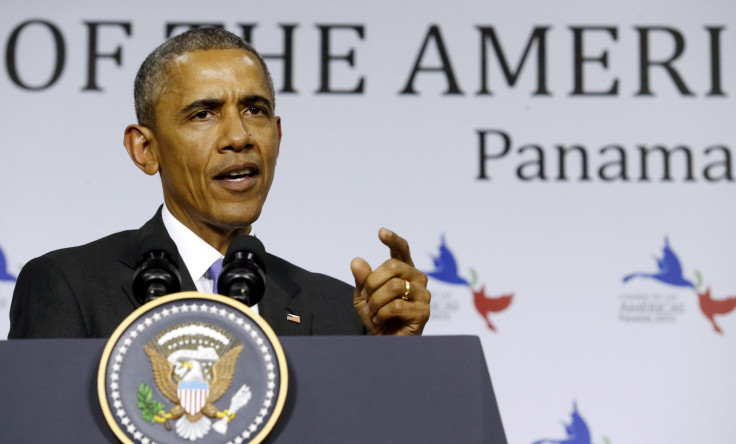Iran Deal Is President Obama’s Diplomatic Victory; Vows To Veto Any Move Against Accord

The historic accord between Iran and a group of six nations led by the United States has become a big milestone in international diplomacy, which is seeking to limit Tehran's nuclear ability for more than a decade, in return for lifting international oil and financial sanctions on it. The deal, coming after 20 months of negotiations is also hailed as President Barack Obama’s biggest diplomatic achievement, though it is still unclear whether it portends a new relationship between the United States and Iran after decades of lingering hostility that had seen coups, hostage-taking, terrorism and sanctions.
The New York Times report said, the Iran deal embodies Mr. Obama’s faith in diplomacy as the most rational way to resolve differences, with his vision pitted against critics who have deep scepticism over the wisdom of negotiating with an adversary. It also said the Iran agreement is the culmination of an approach that stemmed from Mr. Obama’s first campaign for presidency when he vowed to talk with America’s enemies. The report said the products are there to see--Iran deal and reopening of embassy in Cuba.
Sanctions To Go
The agreement reached in Vienna promises roll back of biting sanctions that choked Iran for many years. In return, Iran will restrain its nuclear activities, and its progress will be monitored by the International Atomic Energy Agency. Still, one of the concerns will be the notice period of 24-days, before the inspectors can visit suspicious Iranian sites. The United States was also able to secure curbs from Iran on the amount of nuclear fuel that it can keep in its stockpile, for the next 15 years. Bulk of its current stockpile of low enriched uranium will have to shipped out, probably to Russia. That step along with a two-thirds reduction in the number of centrifuges at Iran's primary enrichment center at Natanz can delay its weaponisation program, by one year, in case it wants to abandon the accord and plan to make a nuclear weapon. The officials call it "breakout time."
Republicans Cautious
While, president Obama is jubilant, Republicans are wary about the complex agreement and a protracted battle seems to be on cards with Congress getting 60 days to scrutinise the deal. Foreseeing such a struggle, Mr Obama, in a televised statement said the deal is "the most definitive path" by which Iran will not get a nuclear weapon and vowed to "veto" any move that will scuttle the Iran deal. Mr Obama promised that there will be an arduous effort to sell the deal to Congress and the public as the agreement was "not built on trust - it is built on verification."
The president’s Iran deal critics include Republicans and Israeli Prime Minister Benjamin Netanyahu, who described the deal as "a stunning, historic mistake." Republicans have vowed to heavily review the terms of the agreement. “It's going to hand a dangerous regime billions of dollars in sanctions relief while paving the way for a nuclear Iran. It's as bad a deal as I think it is at this moment, we'll do everything we can to stop it,” said House Speaker John Boehner.
Many Democrats are also concerned that the accord could make Israel vulnerable. They recall Israel's prime minister’s assertion that the deal will create a “terrorist nuclear superpower.”
Rouhani's Challenge
Meanwhile, in Iran, president Hassan Rouhani made a brief statement and hailed the accord, saying “the Iranian people's prayers have come true." But Mr Rouhani's real challenge is in navigating between hardliners and the vast majority of Iranian citizens who want to put national interest before revolutionary ideology, noted Karim Sadjadpour, an associate at the Carnegie Endowment for International Peace.
Meanwhile, The Wall Street Journal in a report expressed scepticism whether the U.S. has erred by leaving allies such as Israel and Sunni Arab states in the lurch, as the accord is giving room for doubts on an “undisclosed agenda in the US actions” despite the words of reassurance. That the administration wanted to “compensate” allies in the run up to the deal with fresh supplies of arms, new military exercises, and cooperation suggests that the allies may not be convinced that the accord is reassuring or be a catalyst for stability.
(For feedback/comments, contact the writer at k.kumar@ibtimes.com.au)





















